Industrial spaces across New Zealand are changing the way they think about flooring. From bustling warehouses in Auckland to food processing plants in Christchurch, more businesses are moving away from traditional floor coverings and choosing ground and polished concrete. Why? Because polished concrete floors offer a unique mix of strength, style, and savings that’s hard to beat.
In this guide, we’ll explore why polished concrete is leading the way for industrial flooring, how the process works, and what you need to know to make the best choice for your facility.
Polished concrete is a flooring system created by grinding and refining a concrete slab with industrial diamond tools, then treating it with densifiers and sealers. The result is a smooth, hard-wearing, and visually appealing surface that can be finished in a range of gloss levels—from matte to high-shine.
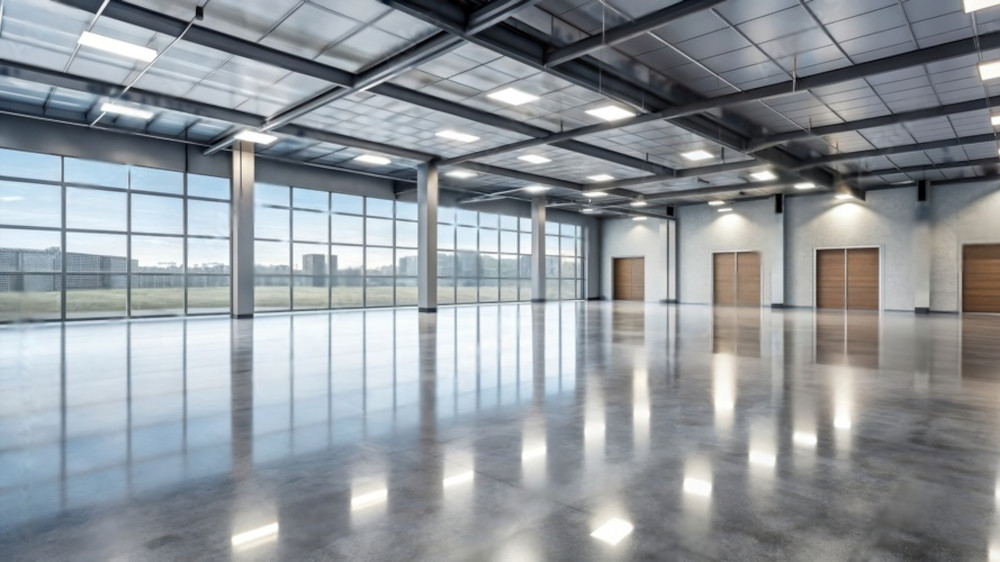
Industrial environments demand flooring that can withstand constant use, impacts, and chemical spills. Polished concrete is known for its high compressive strength and resistance to abrasion, making it ideal for:
Polished concrete floors reflect natural and artificial light, improving visibility and reducing the need for extra lighting. This can help lower energy costs and create a brighter, safer workspace.
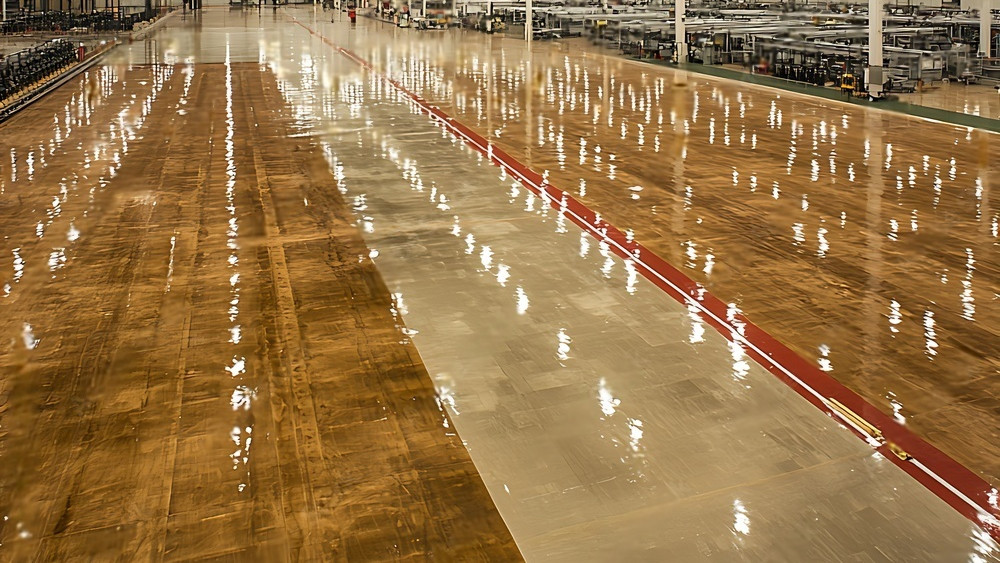
Choosing the right floor finish is a big decision. Here’s a quick comparison of popular options for industrial spaces:
| Flooring Type | Durability | Maintenance | Cost (Long-Term) | Hygiene | Customisation | Typical Uses |
|---|---|---|---|---|---|---|
| Polished Concrete | High | Low | Low | High | High | Warehouses, factories, retail |
| Epoxy Coating | High | Medium | Medium | High | Medium | Workshops, kitchens |
| Vinyl/Sheet Flooring | Medium | High | High | Medium | Medium | Offices, light industry |
| Tiles | Medium | High | High | High | High | Bathrooms, showrooms |
| Burnished Concrete | Medium | Low | Low | Medium | Low | Storage, utility areas |
Note: Costs and suitability can vary based on slab condition, use, and required standards.
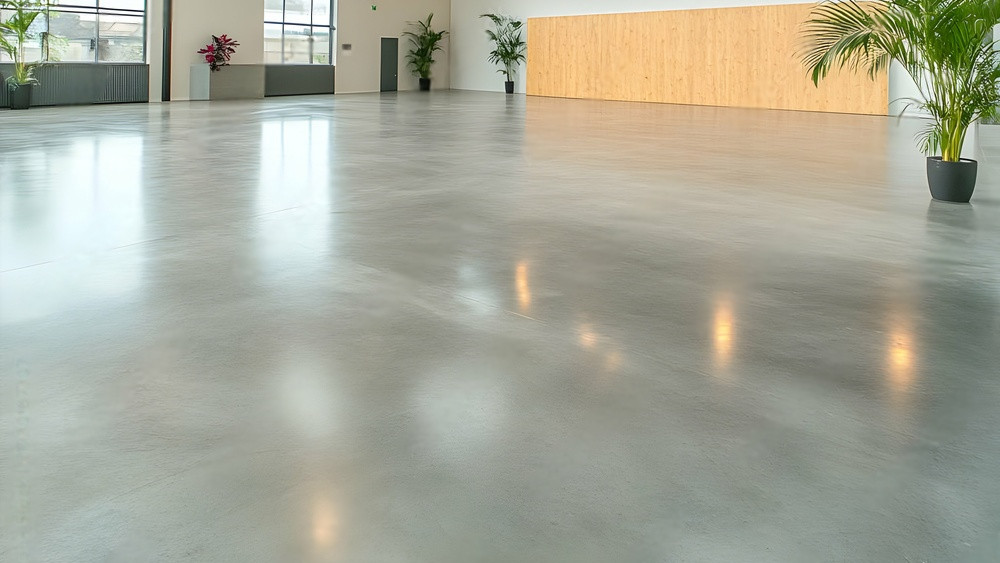
Industrial facilities in New Zealand have long relied on flooring options like vinyl, epoxy coatings, and tiles. While these materials have their place, they often come with persistent challenges that can disrupt operations and drive up costs.
Traditional flooring systems often require frequent repairs, patching, or even full replacement. This leads to:
While the initial installation cost of vinyl, epoxy, or tiles may seem lower, the ongoing expenses for repairs, cleaning, and eventual replacement add up quickly. Over time, these costs often surpass the investment required for polished concrete floors.
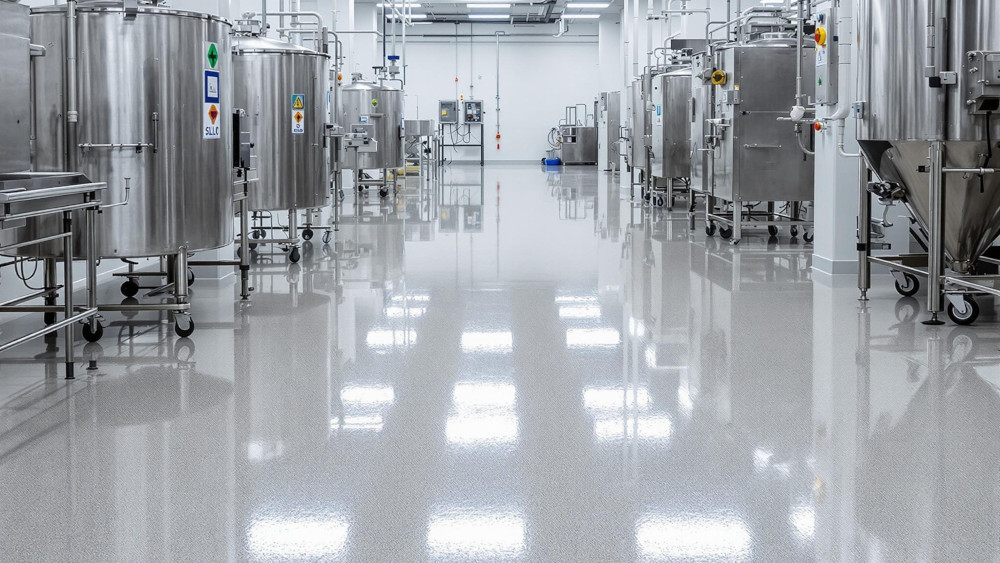
Industrial spaces often face harsh conditions that test the limits of conventional flooring. Polished concrete, when properly specified and installed, excels in some of the most challenging environments found in New Zealand industry.
Polished concrete’s adaptability and resilience make it the preferred choice for NZ businesses operating in the most demanding industrial environments.
When comparing polished concrete vs epoxy or other coatings, consider:
When deciding on the best floor finish for factories or warehouses, consider:
Consulting with NZ flooring specialists ensures you get a solution tailored to your needs and local standards.
| Finish Type | Gloss Level | Slip Resistance | Best For | Maintenance Needs |
|---|---|---|---|---|
| Matte/Honed | Low | High | Food processing, cold storage | Very low |
| Satin Polished | Medium | Medium-High | Warehouses, logistics centres | Low |
| High-Gloss Polished | High | Medium | Showrooms, retail, offices | Low |
| Exposed Aggregate | Variable | High | Decorative, architectural spaces | Low |
| Salt & Pepper Finish | Medium | High | Contemporary industrial look | Low |
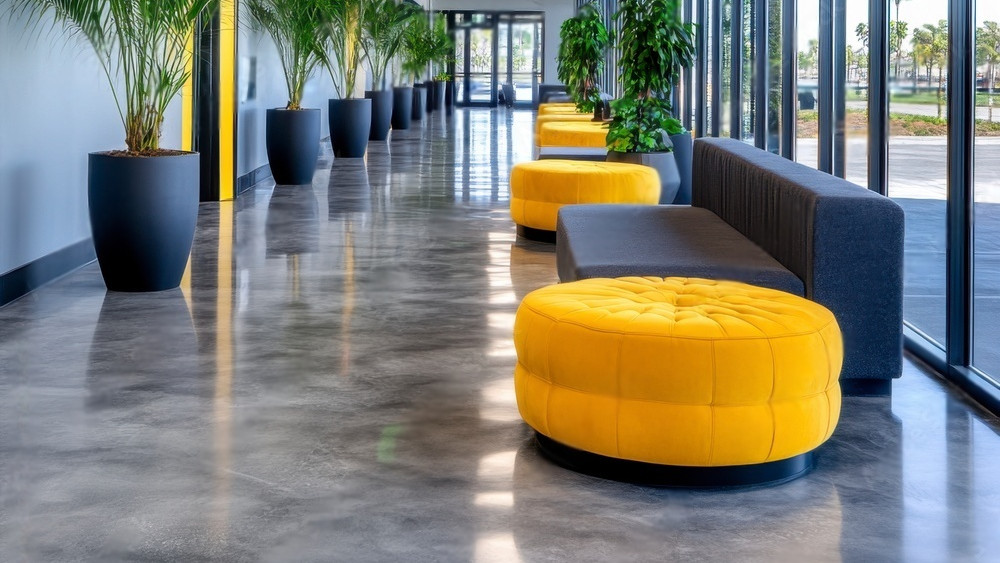
Choosing the right contractor is key to a successful industrial floor upgrade. Look for:
Polished Concrete Floors NZ is a leading provider, trusted by businesses across the country for reliable, high-quality results.
Polished concrete floors are changing the game for industrial spaces in New Zealand. They offer a winning combination of durability, safety, low maintenance, and visual appeal—making them the best warehouse floor solution for many businesses.
Whether you’re renovating a warehouse, upgrading a factory, or building a new logistics centre, polished concrete is a smart, future-proof investment. Ready to transform your industrial space? Contact Polished Concrete Floors NZ for a free consultation and see how we can deliver a flooring solution that works as hard as you do.
Commercial polished concrete floors are created by grinding, honing, and densifying existing concrete surfaces to achieve a smooth, reflective finish. These floors are treated with a densifying agent that penetrates the surface and makes the concrete stronger and more resistant to wear. The polishing process can be customized to different levels of sheen — from matte to high-gloss — making them suitable for showrooms, warehouses, offices, and retail environments. These floors are not only aesthetically appealing but also offer a long-lasting, low-maintenance solution that aligns with modern design trends.
Their popularity stems from the combination of cost-benefit, durability, and visual impact. Business owners appreciate that they can resurface or restore existing slabs without a full replacement, saving time and resources. These floors can be honed to highlight specific textures and patterns, and even tinted with a color for brand alignment. In industrial environments, the difference in upkeep between polished concrete and alternatives like tiles or carpet is significant — there’s no need for waxing, coatings, or stripping. This makes polished concrete a practical, affordable flooring option that also contributes to cleaner air quality when paired with a vacuum-equipped maintenance system.
Polished concrete stands out from epoxy, tiles, and vinyl in both appearance and performance. Unlike epoxy, which may require reapplication and can yellow over time, polished concrete offers a long-lasting, natural surface that doesn’t peel or flake. Compared to tiles or vinyl, it has no grout lines to trap dirt, making it easier to clean and more low-maintenance overall. Polished concrete is also seamless, which enhances its durability in high-traffic areas and eliminates trip hazards — a critical difference for safety in commercial and industrial settings.
From a cost-benefit perspective, polished concrete has lower lifecycle costs. There’s no need for coatings, adhesives, or extensive prep work beyond the initial cure and polish. It can also be resurfaced and even polished again if needed, offering a restoration path that other floor types lack. Epoxy floors may need re-coating after a few years, and tiles can crack or shift, whereas polished concrete can endure forklifts, foot traffic, and even outdoor exposure on a patio with the right sealing. Businesses aiming to invest wisely in flooring should consider the durability and environmentally conscious benefits of polished concrete.
Yes, existing concrete floors can often be polished and customized for commercial applications, provided they are structurally sound. The process begins with evaluating the condition of the slab and determining whether resurfacing or minor repairs are needed. If the concrete is in reasonable condition, polishing can proceed using grinding machines fitted with diamond abrasives. The floor is then densified with a hardening agent to strengthen the surface and reduce dusting. This process brings old floors back to life, providing a restoration option that avoids costly demolition and replacement.
Customization options include various levels of sheen, exposed aggregate looks, and the addition of color dyes or stains for branding or decorative purposes. Polished concrete can also be etched with logos or patterns and sealed using a sprayer for even application. For businesses aiming to maintain a consistent design theme across locations, this flooring provides a flexible and affordable solution. Whether the space is a warehouse, office, or showroom, polishing an existing slab allows for a quick transformation with minimal downtime — making it an expert-approved choice for commercial restoration projects.
Absolutely. Polished concrete is engineered to handle the toughest commercial environments, including spaces that experience heavy loads, such as warehouses and manufacturing plants. The floor is densified to increase its resistance to abrasion and surface damage, making it ideal for use under forklifts, pallets, and other heavy equipment. When installed properly by an expert, polished concrete floors can last for decades with minimal wear, making them a long-lasting and low-maintenance solution for industrial use.
These floors are also easier to maintain than many alternatives. There’s no need for waxing, stripping, or refinishing — just regular cleaning using a vacuum and occasional wet mopping. Polished concrete reduces dust and particle buildup, enhancing indoor air quality in workspaces. Its smooth finish allows machinery to operate more efficiently, reducing vibration and wear on equipment. From a cost-benefit standpoint, businesses often find the initial investment justified by the reduced maintenance, fewer repairs, and greater operational uptime. For areas that endure constant stress, this flooring system is tough to beat.
Polished concrete is considered an environmentally friendly flooring choice because it reuses existing materials and doesn’t require harsh chemicals or new raw resources. There’s minimal waste during installation, and the process eliminates the need for coverings like carpets or vinyl that often end up in landfills. With low-VOC sealers applied using a sprayer, it also helps improve indoor air quality — an essential factor in health-conscious commercial designs.
Safety is another major advantage. Polished concrete is slip-resistant when finished correctly, even though it has a shiny appearance. The surface texture can be adjusted during the hone and polish phase to achieve the right level of traction for the space. Additionally, it is resistant to stains, moisture, and chemical spills, making it ideal for kitchens, labs, or warehouse floors. High-traffic areas benefit from its resilience, especially when maintained using a vacuum system that keeps surfaces clean and safe. Whether it’s a retail floor or a commercial patio, polished concrete combines sustainability with long-term safety and performance.